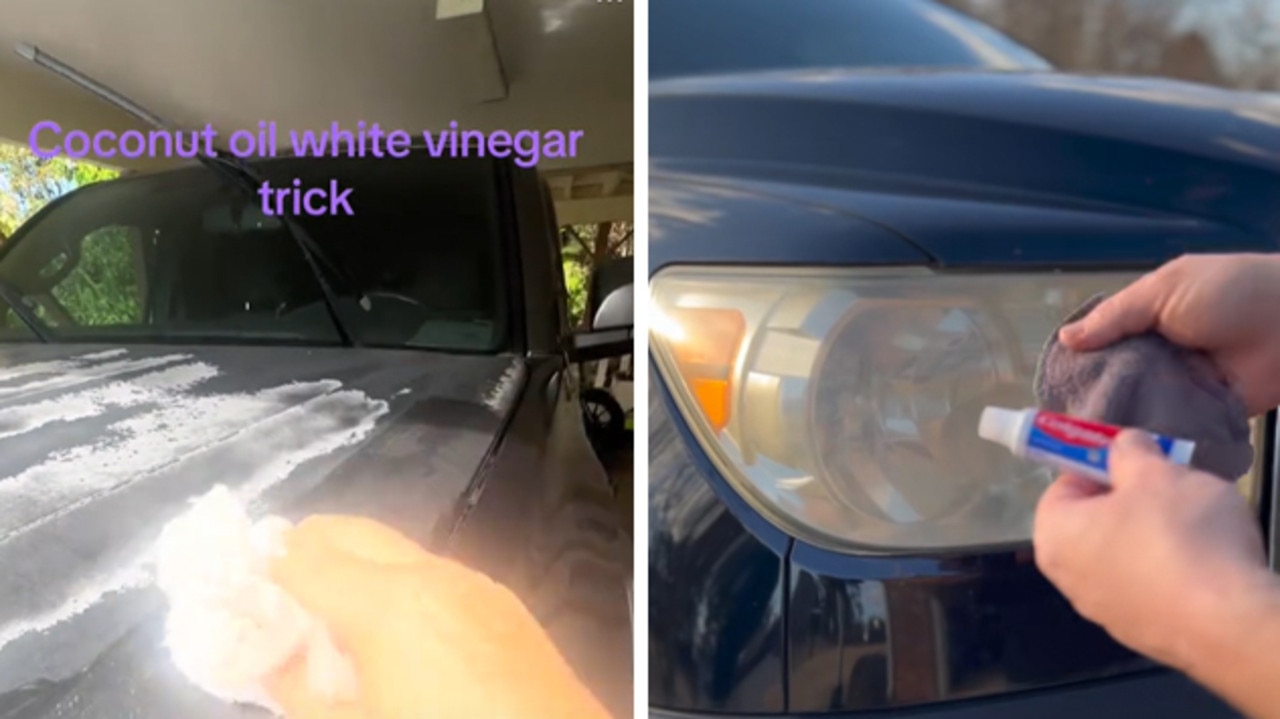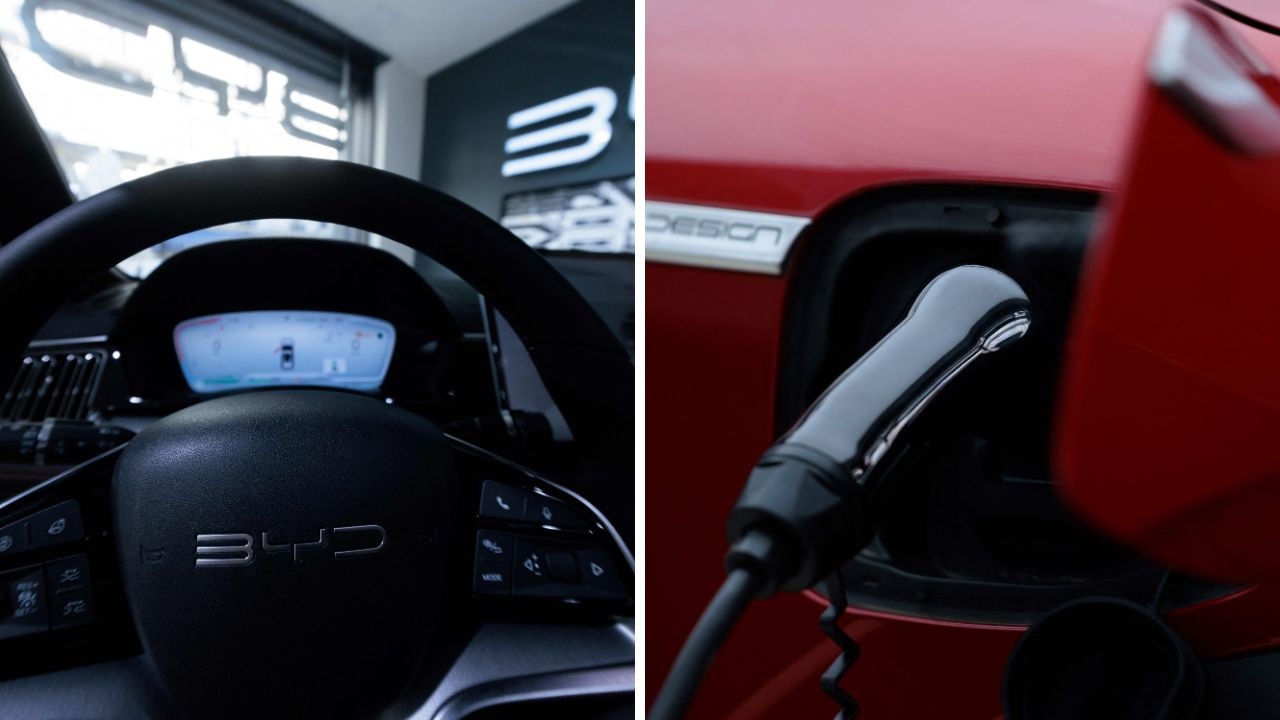The problems with renting an electric car on holidays
Sales of electric cars are booming but if you are planning on renting one for your next trip away there are some things you need to know.
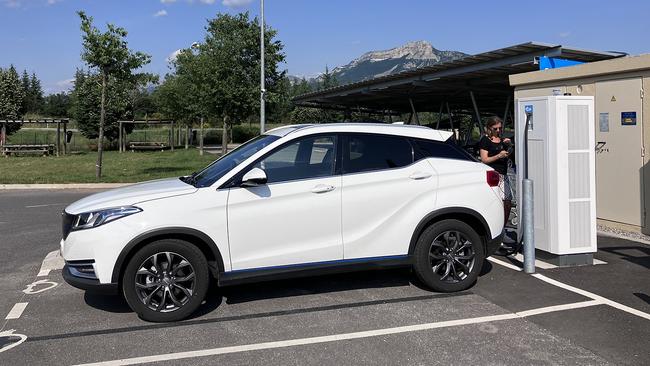
Car Advice
Don't miss out on the headlines from Car Advice. Followed categories will be added to My News.
Planning on renting an electric car for your next overseas holiday? If you enjoy wasting time and money, giving yourself an ulcer and your family hating you, dive right in.
Let me share my nightmare. Our one-week trip exploring the south of France proved an unmitigated EV disaster. The rental car was an obscure Chinese SUV I’d never heard of, we
suffered a stuck charging cable, broken public chargers and our days were planned around
plugging in rather than sipping French wine at riverside cafes.
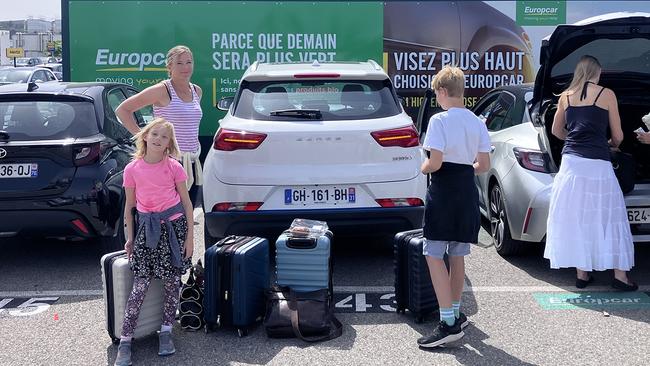
My wife had warned me to play it safe and rent a petrol car. As a motoring journalist, I
insisted Europe had far better and reliable EV charging infrastructure than Australia, we’d
save on fuel bills and lower our carbon footprint. How spectacularly naive.
Most big-name car rental brands have swiftly added EVs to their line-ups, both here and
overseas. When booking our France rental car I was surprised to discover EVs were
sometimes the cheapest option. A sign that renters are eschewing them in favour of petrol
and diesel familiarity?
Pre-booking with Europcar at Marseilles Provence airport, our rental electric small SUV –
ample for two adults and two kids – cost only $441 for the week, or $63 per day.
I’d been sucked in by the propaganda. “Save on petrol! Charging is easy”, screamed
Europcar’s French website. Easy charging? Not in the real world, Monsieur.

My first shock came when collecting the EV. On Europcar’s website I’d booked a Hyundai
Kona Electric “or similar”. The Kona EV’s a car I like very much – it has the maximum safety rating, drives beautifully and has a long, reliable electric range.
What we got was a Seres 3 electric SUV. A what? Seres is a dedicated EV brand from China’s giant Dongfeng group.
It presented okay and had goodies such as heated and power leather-like seats and a big digital screen, but these aren’t what I prioritise in a vehicle.
Unlike the Hyundai I’d ordered, the Seres has no safety rating, a range of only approximately 300km (which proved overly optimistic) and no smartphone-mirroring Apple CarPlay.
It also proved to be the worst electric car I’ve ever driven and I’ve tested dozens.
I argued with Europcar’s front desk that this Chinese EV was in no way “similar” to a
Hyundai Kona. You can imagine the Gallic shrug that followed.
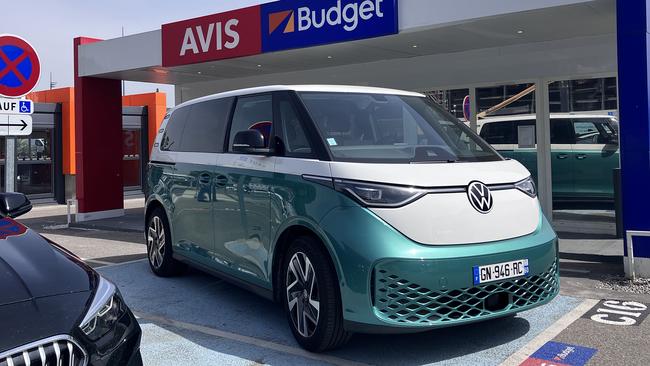
Undeterred, we ventured into the French countryside. First job on reaching our villa was
creating an account for our new Shell Recharge card, something Europcar provides. You link
a payment method via Shell’s app and bingo, you’ve got “easy” access to 275,000 European
charging stations.
Except the app won’t download onto an Australian phone. It’s “not available in my region.”
There’s no website alternative either, it’s app only.
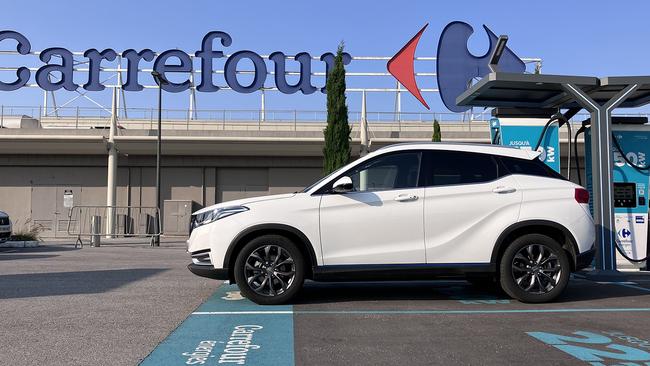
This means any public charger I want to use, I need to register with each individual company. This in a foreign language, inputting credit card details each time. Sometimes it accepts you, sometimes not.
Carrefour is a French supermarket equivalent to our Coles, and some of its carparks have
superb, convenient fast-charging stations where you just tap your Australian credit card and
go.
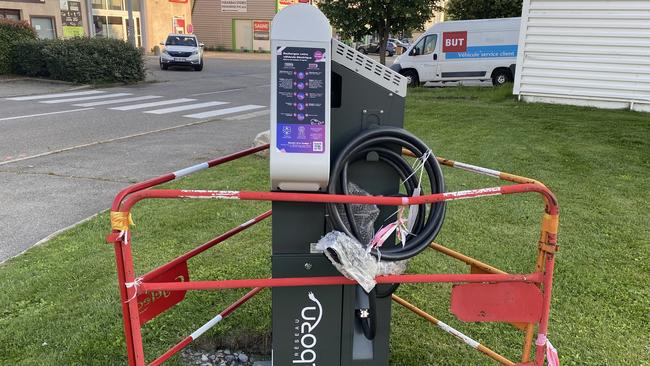
But they’re rare in the French countryside. A phone app lists EV charge points, but they’re
often not where the map suggests, turned off, not yet activated or simply broken. One EV
charger in Provence had its door hanging off, stopping it giving charge. We called to report it
and was told there were no plans to fix it.
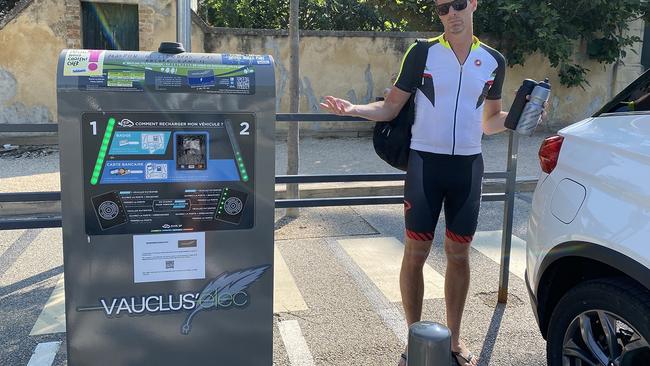
While electric cars can charge (very slowly) using a household socket, our rental villa didn’t
have a parking space close enough to do this. Public charging was our only way, so our
holiday days were planned around setting aside an hour at a charger.
On one fun day our Chinese EV decided to stop accepting fast charging. The charge station
screens reported a problem with the car and one I persevered with ended up stealing $120
from my credit card without delivering any electricity. Criminal.
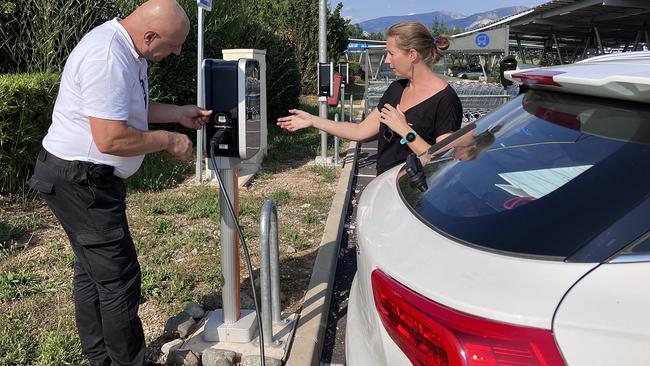
Another charge point locked our charge cable into the slot, only releasing it after a fraught
hour appealing to the machine owners.
The low point was five hours of failing to charge the car, stuck in a Lidl car park with
only 3km range remaining. We managed to slow charge here with very tired, hungry
children in the back and a wife in the front shuffling through divorce papers.
We’ll not risk renting an electric car on holiday again. Not until there’s better and more
reliable infrastructure and a simplified way of paying for charging.
Our next stop was England where we rented a petrol-powered Vauxhall Astra. At a servo, I
almost cried with joy at paying $3 a litre for unleaded … something I never believed possible.
Originally published as The problems with renting an electric car on holidays

